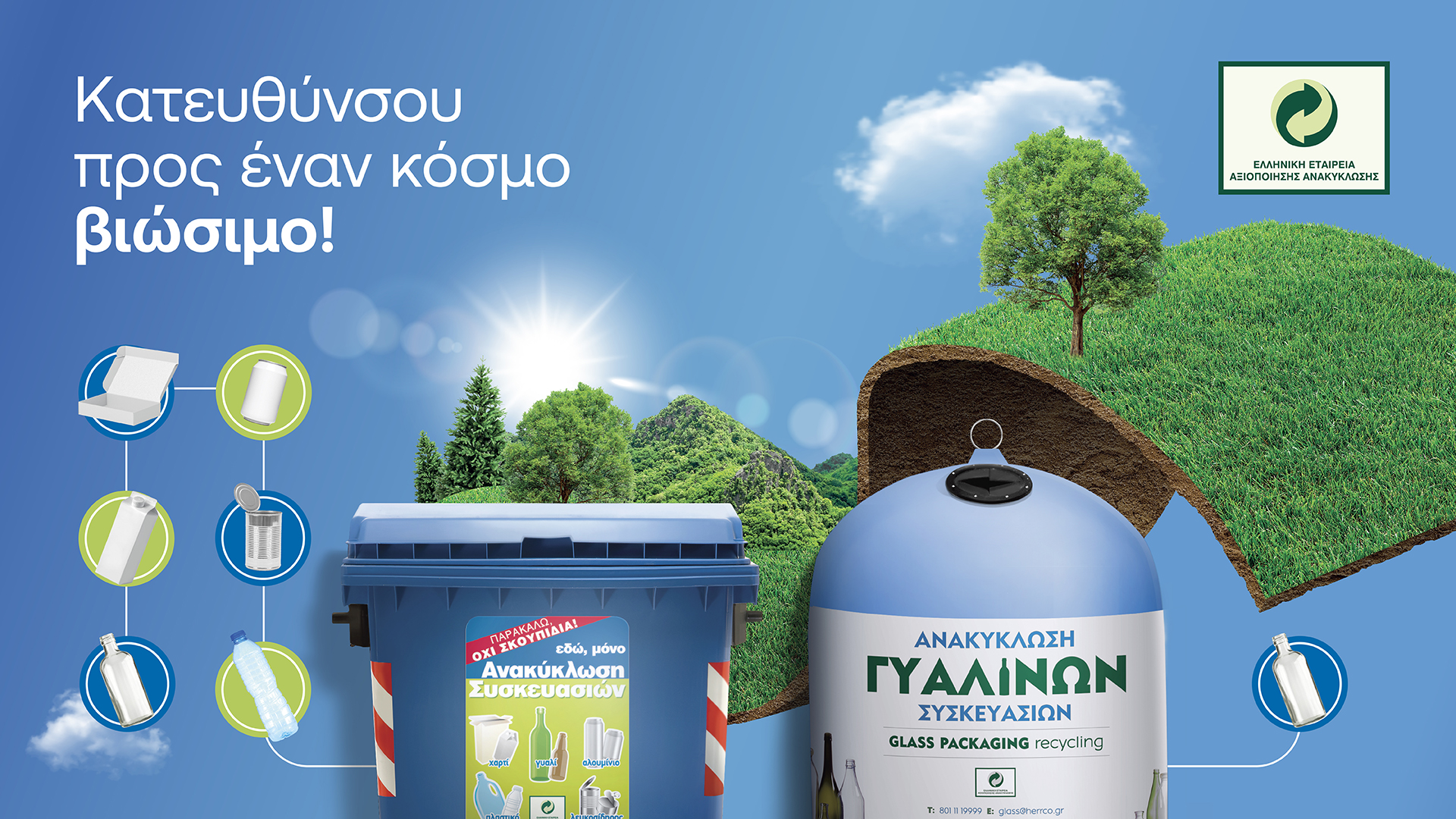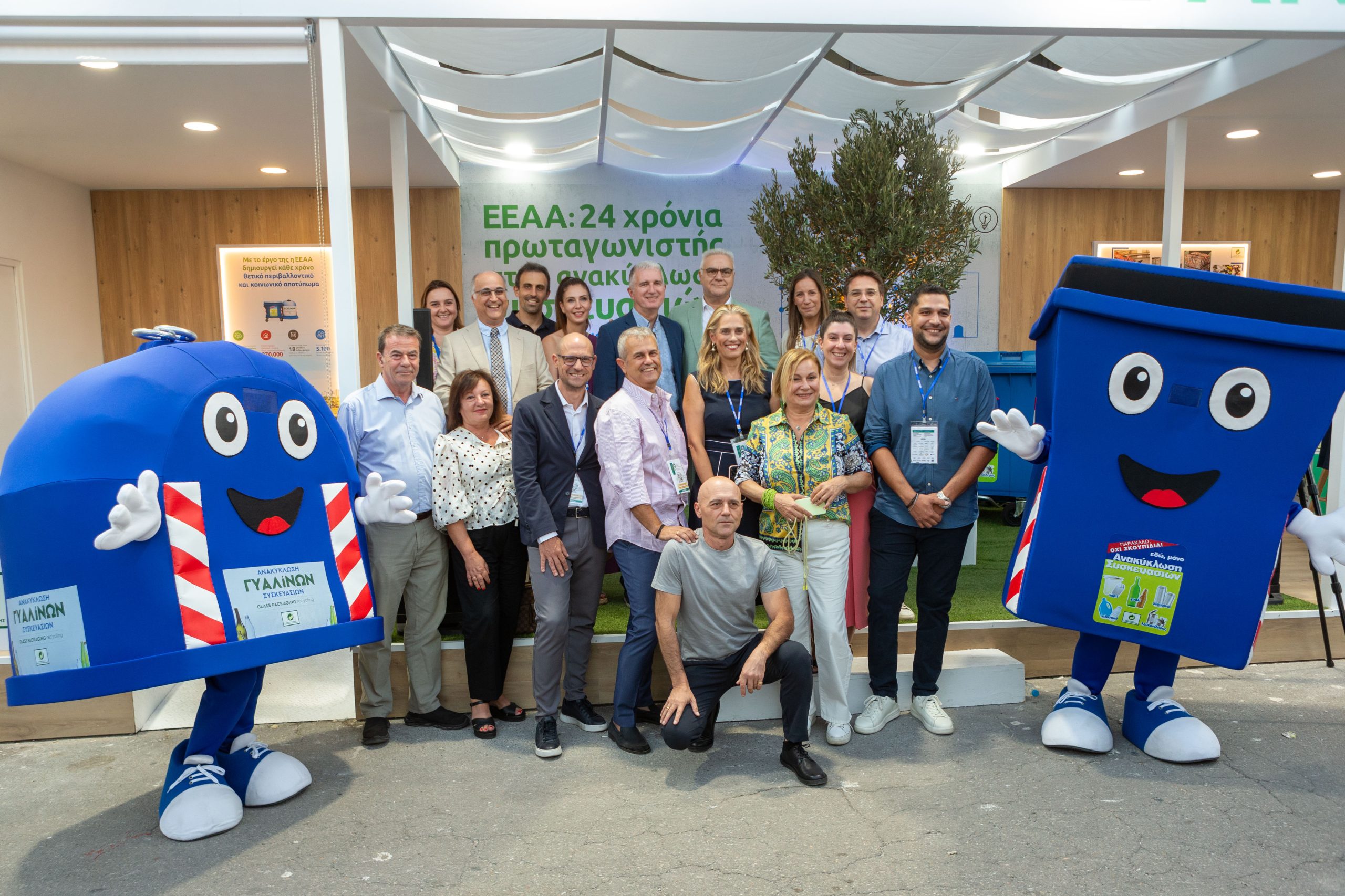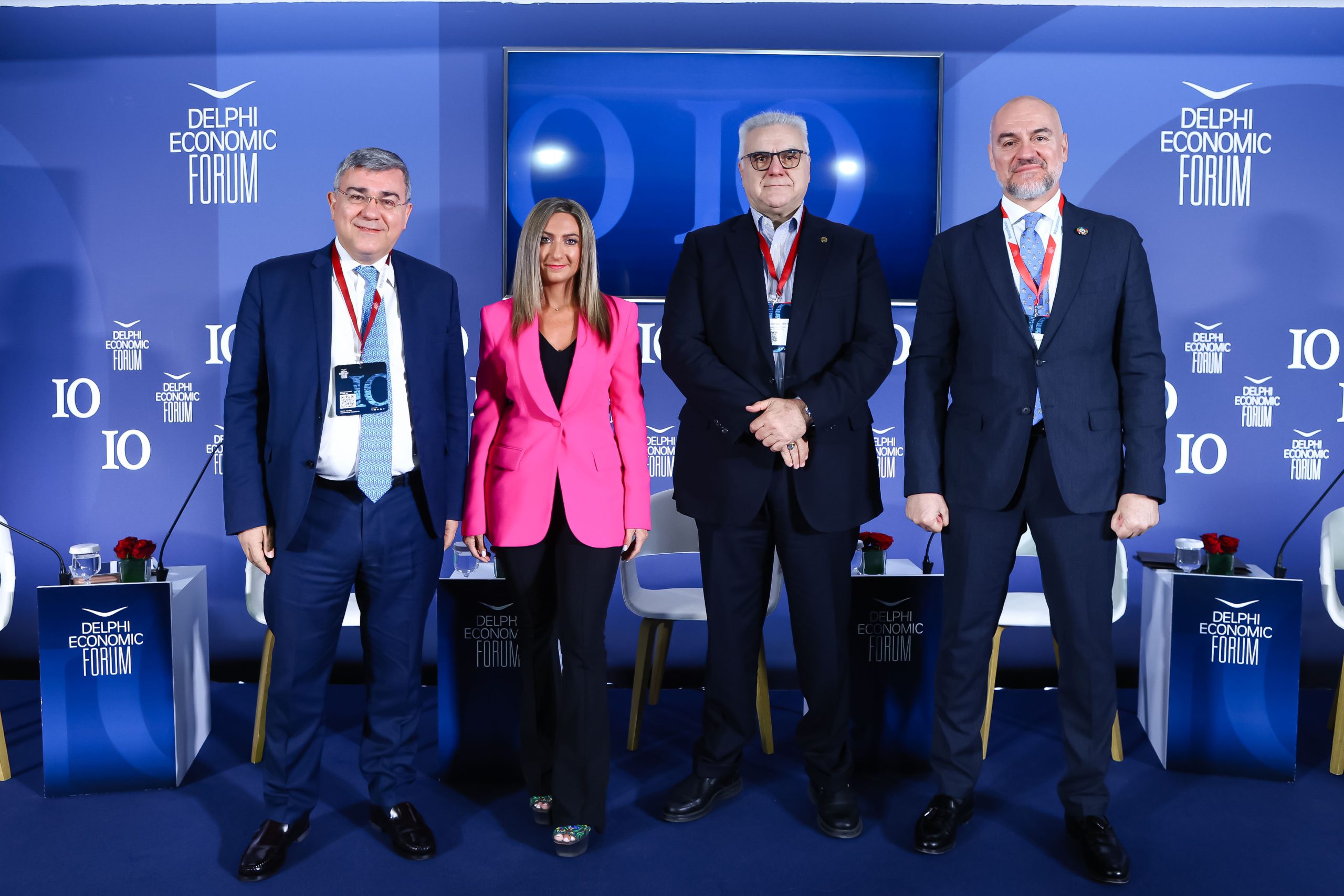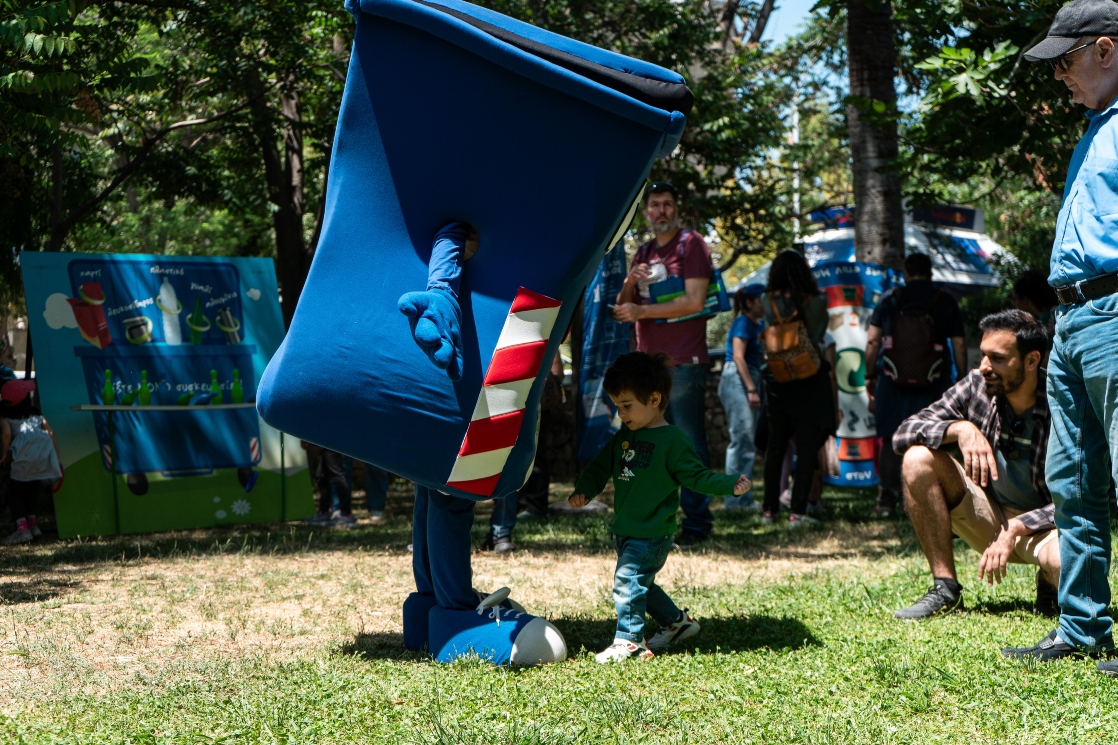How does the blue bin recycling system work?
HERRCO's BLUE BIN System, has been running for 18 years and is the national Collective Alternative Management System (CAMS) which has effectively brought the concept and the practice of Recycling to all of Greece's citizens. Its operation is based on its legal obligation to ensure for the recycling of packaging which its 2,800 contracted businesses “place” on the market, at the respective percentage that is laid down by national and community legislation. HERRCO is a Société Anonyme, created by businesses - packaging producers with the Central Union of Greek Municipalities holding a 35% stake both in its share capital and in its administration. HERRCO collects the contributions from Industry and Commerce as ultimately determined by the decisions of the competent Authorities, one might say that it is their “collective wallet”, and manages them in the most efficient and trustworthy way, i.e., in a way that produces the maximum recycling possible. The main activities through which HERRCO responds to its legal obligation are the Blue Bin and Blue Bell projects which are implemented in cooperation with Greece's Local Authorities (OTAs), the certification of private recycling, i.e., recycling carried out by commercial Secondary Material companies (without the mediation of municipalities, and without public or household bins) and various third-party sources of recycling with a smaller contribution, (recovery of green-bin materials in MHW, etc.). At this stage, HERRCO's legal obligation relates to 60% for the Total Packaging Materials (in relation, of course, to quantities contracted with it) and to individual percentages for each of these materials (paper, cardboard, glass, plastic, aluminium, iron). Please note, however, that for the coming years these percentages, namely the goals, have already been revised upwards by the Community legislation in view of 2025 and 2030. I would like to highlight a misconception that is often deliberately cultivated in the public speech: Packaging recycling is a small part of the overall recycling which the State and OTAs are obliged to carry out. Packaging waste represents about 20% of Municipal Solid Waste, while organic household waste represents about 40%. Thus, Greece's delay in the overall recycling rate should not be confused with the Packaging Recycling rate, which achieves its goals.
What is the outcome of HERRCO's 18-years in operation?
HERRCO marks numerous and significant results in its 18-year course of business, not only in measurable and quantifiable terms, for which it would suffice to say that approximately 7 million certified tons of materials have been recycled thanks to the operations of the System over these years. It would also suffice to highlight that in a very problematic field, such as that of Solid Waste Management, where Greece has made a series of breaches and has been fined by the European Commission's agencies in these decades, no fines have been imposed to Packaging Recycling thanks to an overwhelming degree to HERRCO’s activities, and it is a field in which Greece achieves its goals. In any case, in an area lacking successful, reliable, and effective examples, the operation of HERRCO alone, as field of cooperation between Businesses and municipalities, has been a notably good practice. But its contribution to Greek society is much greater. HERRCO brought Recycling as a concept and as a practice to the door and to the life of each one of us, of almost all the Greek people. With the cooperation of the educational community, it educated and still educates students at all Education levels (from pre-school education to high school) on the proper way to participate and on the benefits of Recycling. For example, in your area, specific educational programs, that have been authorized and approved by the Ministry of Education, are being implemented in the schools of the Regional Unit of Thessaloniki with the cooperation of ANANTOLIKI SA, an inter-municipal company of East Thessaloniki’s Local Authorities (OTAs). With respect to number crunching, I would say that HERRCO currently has approximately 170,000 active bins in our neighbourhoods; it has assigned 524 special collection vehicles, by way of a notarial donation act, to serve these blue bins (more than 125,000 blue bin collection routes were carried out by the country's OTAs in 2019 which delivered certified and weighed packaging materials to the MRFs operating throughout Greece). Also, on an annual basis, with the collaboration of the 305 cooperating municipalities (but not limited to these), HERRCO implements numerous information and awareness-raising campaigns and actions on Packaging Recycling and to constantly remind citizens of the necessity of their daily participation and its simplicity. However, the most important and most costly fact is that HERRCO ensures the operation of the country's 33 licensed blue-bin load recovery industrial facilities (MRFs), since it financially supports them pursuant to the corresponding cooperation contracts with the economic operators that run them. Keep in mind that the sorting of packaging material is not a viable financial activity in the sense that its cost is not covered by its revenues from the sale of secondary packaging material. Therefore, the operation of the MRFs is not an implied market operation and is only feasible in the context of the operation of the Extended Producer Responsibility Systems such as HERRCO. Through its activity, more than 550,000 tons of materials were recycled in 2019. HERRCO's overall operation maintains more than 2,200 full-time jobs (without taking into consideration the side activities in the mechanical construction industry, transport, etc.), while more than 360 million euro have been spent on investments and operating costs of the major infrastructure created in the country in its 18 years of operation. Breaking down the numbers, I would say that HERRCO currently has approximately 170,000 active bins in our neighbourhoods; it has assigned 524 special collection vehicles to serve these blue bins by way of a notarial donation act. Seven million tons of packaging materials were recycled thanks to the Blue Bin System activities in the Hellenic Recovery Recycling Corporation's 18 years of operation. Packaging waste represents only 20% of the Municipal Solid Waste, but is recycled at a significantly greater rate in relation to other waste streams, thereby covering the greatest part of the overall Recycling in Greece. HERRCO's overall operation maintains more than 2,200 full-time jobs, while more than 360 million euro have been spent on investments and operating costs of the major infrastructure created in the country in its 18 years of operation.
“HERRCO brought Recycling as a concept and as a practice to the door and to the life of each one of us, of almost all the Greek people.” point out Dimitris Papasotiriou, Head of the Local Authorities & Marketing Department at HERRCO
How many blue bins and bells have you deployed in the municipalities of Thessaloniki and how many recyclables does each municipality produce?
I can indicatively tell you, so that you have a feel of the numbers and the proportions regarding the equipment required per municipality, that in the municipality of Thessaloniki around 3,800 blue bins and 450 blue bells have been deployed and are served. In particular, the equipment per OTA and mainly the results of the Recycling project per municipality are kept by the cooperating OTAs and, of course, as required by the competent Authorities (Ministry of the Environment, HRA) to which they are declared both by HERRCO and the OTAs.
In terms of revenue for local government and obvious environmental benefits, what does each municipality gain from recycling?
By recycling packaging using the blue bins that are positioned in a close vicinity to citizens to facilitate them, in a simple and practical way, and to allow their daily participation, and with a method leading to a mass diversion of quantities from Sanitary Landfills, there are significant benefits for municipalities and citizens: Firstly, the volume of waste that goes to Sanitary Landfills is reduced, which prolongs the lifetime of these valuable infrastructures. Thus, the municipality has an additional secondary benefit since for every ton of waste sent to the landfill, it pays the corresponding landfill fees (EUR 30-50 per ton), and it won't be long before a landfill tax will be added, which will further burden the finances of the municipalities for the non-recycled quantities. By saving on the landfill fees, the municipality is able to reduce the municipal fees paid by the citizens or to invest in upgrading the services it provides. Furthermore, at society level, we save raw materials and energy by substituting raw materials in industry with secondary materials, and together we protect the environment and the natural resources of the country and of the world. We create and maintain new full-time jobs in the packaging waste collection and sorting sector at local level and in cooperating economic sectors. Finally, we upgrade the quality of life in our neighbourhoods and overall strengthen our environmental awareness and attitude.
What changes does the new recycling bill bring? Is it heading in the right direction?
Are there areas that concern you?
The new Draft Law on Recycling introduces new domestic regulations while incorporating regulations imposed by the amendment to the European Directives on waste and packaging waste, which was established in 2018. Several provisions in the draft law are in the right direction. These include those establishing the possibility for Local Authorities to introduce “Pay-as-you-throw” systems, those establishing the principle of “technically feasible” and “economically viable” and those introducing measures to encourage the eco-design of packaging products, those establishing the interconnection between the National Producer Registration Body and the General Electronic Commercial Registry (GEMI) and introduce terms and conditions to exempt the responsible packaging producers from the responsibility of alternative management. However, there are also some provisions related to the operation of the MRFs that raise some concern as they attempt to impose specific technical equipment on Recovery Facilities or attempt to impose obligations on economic operators that are not competent and/or establish obligations that they are impossible to be fulfilled. Either way, we hope that the final draft law will exclude some problematic provisions. You know, Laws are not always the most appropriate level of regulation when authorities want to impose their volition to achieve public benefits. There are more specific and lower levels (e.g. JMDs, decisions by supervisory authorities regulating the market, etc.) that are suitable for establishing technical regulations. At these levels, a thorough technical-financial approach of the issues will have also been ensured before their regulation. And this logical thinking is necessary for the optimal law-making.
Dimitrios Papasotiriou
Head of the Local Authorities & Marketing Department
Interview with Sophia Christoforidou





